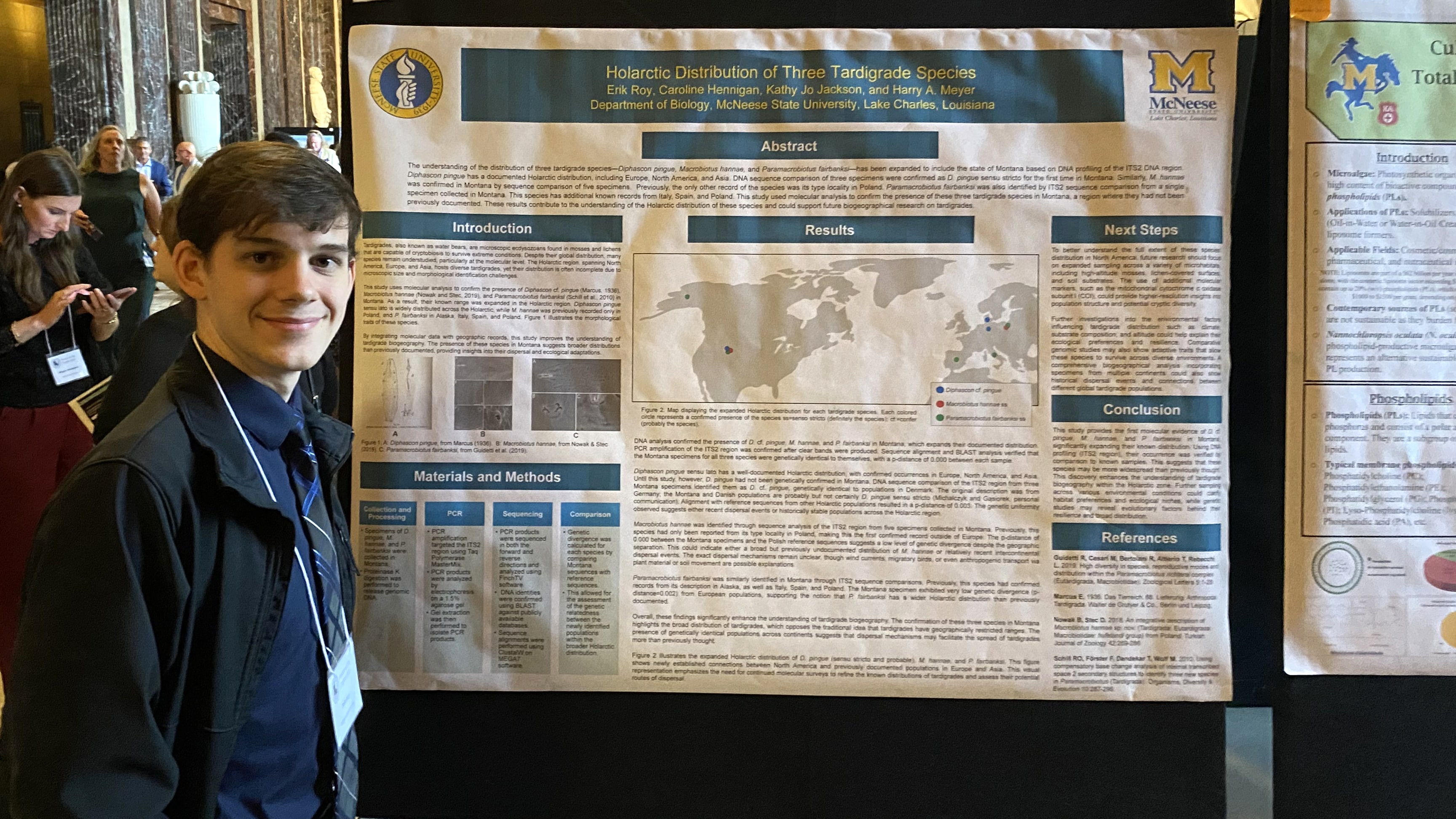McNeese Student to Present Research in Japan

McNeese State University student Erik Roy is taking his research on tardigrades to Japan.
Tardigrades, often called water bears, are tiny microscopic aquatic animals with flat heads, segmented bodies and eight legs, each tipped with four to eight claws, and are nearly indestructible.
Roy, a junior biological sciences major from Bell City, is working with Dr. Harry Meyer, Dr. Kathy Jackson and Dr. Caroline Hennigan researching the Holarctic distribution of three tardigrade species.
“I’ve always been fascinated by the connection between molecular biology and ecology. Tardigrades are also an incredible group to study because of how tough and adaptable they are,” Roy said.
The researchers are extracting DNA from tardigrade specimens and amplifying the gene regions using polymerase chain reaction (PCR). Then those sequences are compared to known sequences from genetic databases.
“This molecular data helps us understand not just what species are present, but also how they’re distributed across different environments and geographic regions,” Roy explained.
This summer Roy, along with McNeese professors, are going to Tsuruoka, Japan, to attend the 16th International Symposium on Tardigrada. There, they will present their research, specifically how PCR and DNA sequencing will help understand the biogeographic distribution of tardigrades.
“It’s a truly exciting opportunity to meet leading researchers in the field and share our work on a global stage,” Roy exclaimed.
He has also presented the research at the McNeese Undergraduate Research Symposium, the University of Louisiana System Academic Summit and the 2025 Louisiana Academy of Sciences meeting.
Roy found this research opportunity while taking a genetics course and became interested in molecular biology identification techniques.
“When I heard about this tardigrade project, I was immediately interested,” Roy said. “My professors graciously guided me in the lab and trained me in techniques like PCR.”
Roy encourages students to talk to their professors about research and not to be worried about a lack of experience. Students can prove that they are hardworking and willing to learn new techniques that might open doors to advanced techniques.
Roy plans to attend medical school and chose to attend McNeese after several physicians he shadowed and worked with recommended McNeese’s pre-med program.
“They told me it gave them a solid science foundation and meaningful opportunities, which I’ve definitely found to be true,” he said.
The support from the professors and access to lab experience have made an enormous difference for Roy. He said that McNeese has many wonderful opportunities for undergraduate students, and research is just one example.
“Even though my current research is focused on tardigrades, the molecular techniques I’ve learned—like PCR and DNA analysis—are foundational tools in modern medicine and biomedical research. This research experience has helped me develop my lab skills and my ability to think scientifically,” he said.
“I feel incredibly fortunate to be doing this kind of research as an undergraduate. It helped me grow as a scientist and for my future as a physician, given me new perspectives and introduced me to a large community of researchers,” he said. “I hope more students take part in research because it’s been one of the most rewarding parts of my college experience!”
Become a Cowboy! Apply today!
Want more stories like this one sent straight to your inbox every week? Sign up for our McNeese eNewsletter!
The Office of Marketing and Communications
4205 Ryan Street
Lake Charles, LA 70609
337-475-5640
communications@mcneese.edu

